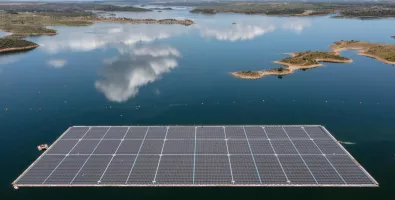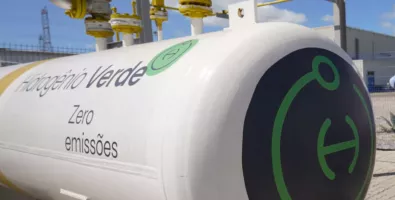
EDP’s efforts on renewable hydrogen
The renewable hydrogen market represents one of the growth axes for EDP, aiming to capture the growth of the sector due to the decarbonization objectives being set, supported by the expected increasing competitiveness over the course of this decade.
With the creation of the H2 Business Unit (H2BU), EDP aims to strengthen its ability to respond to the growing needs for this market, whether it is renewable electricity or renewable hydrogen itself, in a strategic and cross-cutting way that promotes investment in renewable energy.
The focus of H2BU is on developing opportunities for the uptake of renewable hydrogen in promising sectors such as the industries of steel, chemistry, refineries, and cements, as well as long-haul heavy transports. Aligned with EDP’s group footprint and the development of the market, the priority geographies are the United States and Europe, leveraging the existing renewable capabilities, active pipeline and market knowledge.
Since the establishment of the H2BU in 2021, EDP has pursued three goals that enable building a track-record on renewable hydrogen while planning for future growth: build operational experience; demonstrate EDP’s competitiveness; and create growth opportunities. Following this approach, EDP has currently one project in operation in Brazil and a project under construction in Portugal, which are supporting the development of skills to build H2 projects from a technical (e.g. electrolysis, BOP (balance of plant), storage), regulatory (e.g. licensing, permitting), and market (e.g. electricity sourcing) perspectives.
In addition, the company has several projects submitted and under evaluation for funding mechanisms, with seven having already secured public funding (including from the Portuguese and Spanish Recovery and Resilience Plans and the European Commission through two Innovation Funds) and three included in IPCEI “Hy2Use” (which is an acknowledgment by the European Commission of the importance of such projects for the European interest).
The projects being pursued by EDP are in the range of 5 to 150 MW, several of them having the potential to scale-up to more than 500 MW if market conditions accelerate. These projects target mainly local uses, but the larger project designs allow capturing future international market of renewable products, including H2 but also ammonia, methanol and sustainable aviation fuel.
Target capacity by 2030
Public funding secured
Important Projects of Common European Interest
Projects selected in Spain and Portugal
Projects supported through the Recovery and Resilience Plans
“The projects being developed by EDP range from 5 to 150 MW, with several of them having the potential to grow to over 500 MW”
EDP has been developing different types of projects, leveraging its distinctive capabilities and aiming to create knowledge about different project configurations and business models.






